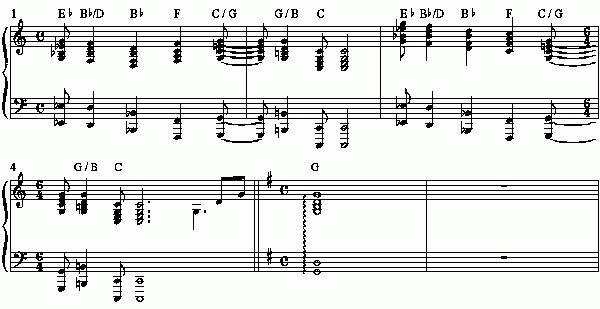In 2000, Elton once again teamed up with
lyricist Tim
Rice to write a dozen songs for the animated
film The Road to El Dorado. As part of the promotion for
the movie, Elton made personal appearances and performed
several concerts with a full band to play several of the
tracks from the movie. This version of the song is taken
from a performance on VH1 recorded in February and broadcast
in March. Pretty much it's identical to the studio version.
The word that first came to mind when I heard this song
was beautiful. Elton has done it again. He absolutely has
conquered the animation song medium. In conquering it, he
set a standard that will be difficult for others to match.
I've included the mp3 for your reference. You can tell Elton's
in a great mood as he introduces the song with a brief story
complete with some baudy humor.
There are several key things to note. First of all, the
piano is very much a role player rather than being in the
forefront of this arrangement. By in large, and even more
so in the studio version, the piano stays in the background
interwoven with the other instruments. There is no prototypical
Elton piano playing here.
Nevertheless, this is a beautifully crafted song filled
with simple little parts shared by all of the other instruments.
The strings really embrace the harmonies and melody. The
little organ part blends in beautifully and compliments Elton's
singing in the opening verse. The fretless bass - just gorgeous
even though limited to 2 well placed riffs in the song. And
finally that little horn riff pops out. Truly amazing! This
is producer Patrick
Leonard's work and it makes the song
just shine.
As with all great Elton songs, there is a signature riff.
This one is a trip around the circle-of-fourths starting
at Eb. It shows up in the beginning, middle and end of the
song
and stands out as an excellent contrast against the G-major
palette established in the rest of the song. Through syncopation
and harmony, it provides both movement and focus.

The verses follow a simple ballad path using I-IV-V-I. The
chorus modulates to
C, leading to an amazing and dramatic Em7b5 under the words "I
love you" which then resolves
to an A7. Those 3 words, "I love you," have probably
been used in more songs than any other 3, but I challenge
anyone to find an example of a piece of music which more
passionately supports them musically than this song. It's
a beautiful moment in a beautiful piece of music.
Ultimately the movie was not much of a success. As a result,
the music didn't do so well either and Elton soon dropped
it from his set lists. It's really a shame if you ask me
because I still love it here at the Music Café. |

